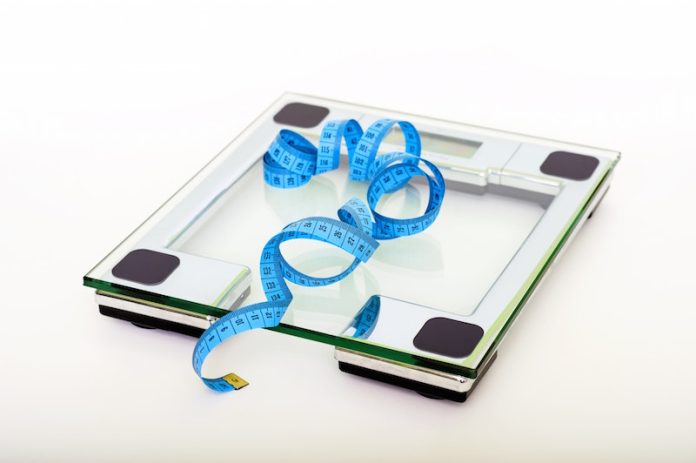A scale can be a useful tool for tracking your progress on your weight loss journey, but it’s certainly not perfect. Depending on various factors, scales can look completely different in the same day – and you probably know this all too well.
Below, you’ll find seven reasons why the scales seem to be climbing — some out of your control, some not — that may help find the right time of day or week to get the truest numbers.
you just worked out
Think weighing yourself after a sweat will give you a more desirable number? Think again. Weighing After Workouts Can Actually Kick the Scale Up
Especially if you’ve just started an exercise regimen or just gotten back into the swing of things, you’re putting extra stress on your muscles, which can lead to short-term inflammation. do not panic! This is good inflammation, which in turn leads to an anti-inflammatory response. According to the Cleveland Clinic , this only results in temporary water weight retention.
it’s that time of the month
Your period usually makes you feel bloated, and water retention can cause a temporary spike in scale. Add that to hormonal fluctuations and food cravings, and you have a recipe for short-term size gains.
During this time, it’s best to avoid the scale and instead focus on taking care of your body. Fill up with fiber and electrolytes to keep regular and allow yourself time to rest. Plus, you don’t need any extra stress than you’re already feeling this week!
you eat a lot of salty food
Whether you’ve had a night of overindulgence or regularly consume high amounts of sodium, this can have a short-term impact on your weight. Eating salty foods can cause water retention, if this is an occasional thing for you, don’t sweat it. However, if you regularly eat more salt — the daily limit on the calorie diet is 2,000 mg — you may actually gain weight. This can also lead to puffiness and constipation, so it’s best to stay hydrated and wait a day or two to let your body deal with it, rather than being freaked out by the scale.
you’ve been trying to drink more water
So you buy a reusable water bottle, and you set a goal to fill it up a few times a day. This is a great goal! However, if this is a big step for you, you may need some timing adjustments to the scale (and bladder) until your body can handle the influx of water throughout the day. Drinking water can actually help you reduce bloating and even lose weight if you’re using it in place of sugary drinks , so just hold on tight while your body adjusts.
you had a big meal recently
Weighing yourself after a huge meal you just ate is downright mean. According to the Mayo Clinic, food can take up to eight hours to pass through your digestive system, which can cause you to maintain a little extra weight until the process is over.
Also, sodium and sugar can lead to extra water weight retention, as well as bloating, so give yourself a break the next day. Chances are, drinking some water and going for a walk will punish yourself more than stepping on a scale, and you’ll be better off mentally.
you’ve been building muscle
Regular exercise is a science-backed way to lose weight, but that doesn’t exactly mean the scale will follow. Depending on the type of exercise you do, you can still lose weight while gaining muscle.
For example, fitness influencer Anna Victoria lost only five pounds in total during her major body transformation , as she lost fat and gained muscle. Don’t get us wrong – a pound of muscle is equal to a pound of fat – muscle just takes up less space than fat . This could be the reason for a smaller waist size but the same (or higher) number on the scale.
your digestion is off
The rule of thumb for when to weigh is usually in the morning before breakfast and after a bowel movement, so stepping on the scale is really not ideal if you have backup. Constipation doesn’t leave you too squishy, constipation means you have waste in your digestive tract and it causes you to carry around excess weight until it passes. Help yourself get regular by adding fiber, staying hydrated, and taking long walks before getting back on the scale.
While setting goals is an important part of your weight loss journey, it’s important to be realistic when setting them. Discuss a healthy weight range with your doctor or a registered dietitian instead of trying to nail down a specific number for yourself. Plus, focusing on adopting a healthy lifestyle — like getting enough sleep, eating plenty of vegetables, and exercising daily — rather than what’s currently flashing on the scale will make you happier and healthier in the process.
“It’s important to remember that weight is just a number,” says Valente. “There are so many other ways to assess your health. How do you feel at the end of the day? How much energy do you have? Are you strong enough to do the things you love? Are you eating healthy foods and foods you like to eat? To nourish your body? Taking care of yourself and your health is important and it won’t be reflected in the numbers you see on the scale.




